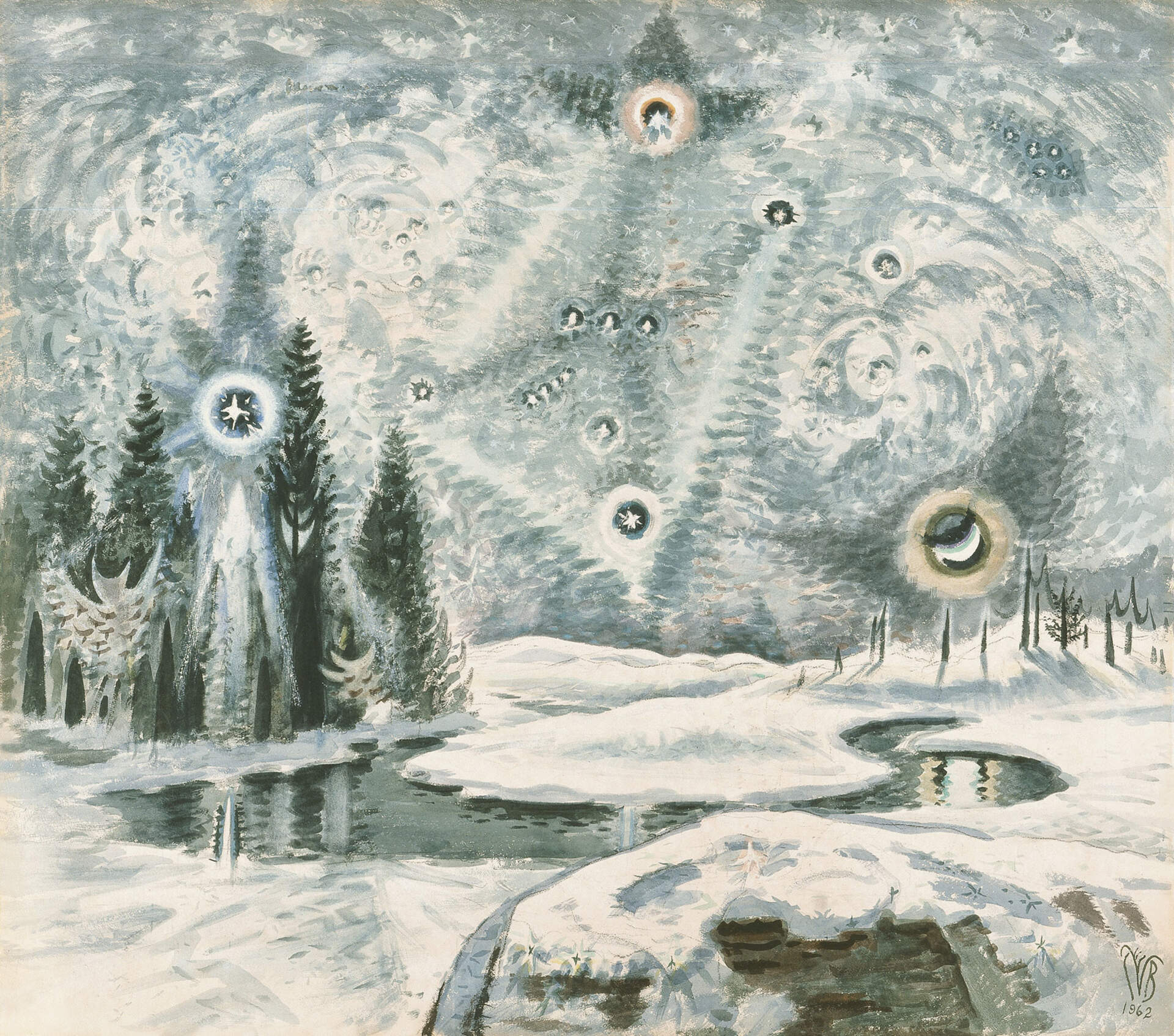
Charles E. Burchfield (1893-1967), Orion in Winter, 1962; watercolor, white chalk and charcoal on paper on paper, 48 x 54 inches; Fundación Colección Thyssen-Bornemisza, Madrid, 1993
Charles E. Burchfield, Journals, Vol. 39, December 19, 1934
Saturday, Dec 26, 2015
I finished reading “The Story of an African Farm” by Olive Schreiner, tonight, and sat for some time in such an ecstatic revery [sic] as it is rarely my lot to enjoy. A grand book!— What a joy it is to find one more treasure to add to the store that slowly accumulates thru one’s life — that store of great minds, great works of art, and expressions that peculiarly belong to us. They come generally out of a clear sky, unheralded. I was filled with a joyous warmth of feeling, and sat thinking of some things that I love, and some of the human beings who mean so much to me. Bertha was playing Christmas Hymns on the piano in the same room, and happened to be playing “Good King Wenceslas” when I finished reading- this melody has for me a strange character, particularly the end, the last three notes – “do–fa–do” of equal length. I can’t explain the mystery that seems to lie in that simple phrase. I call it the arc of wonder; I felt a warm regard for that unknown man who conceived that melody with its odd ending—just how or why did he do it that way? Only because he felt a genuine “wonder” over what he was expressing. The ordinary song maker would have written “do-sol-do” or “do-me-do” – or even “do-re-do” – but they would not have done. He belonged to my “store” –
As tho I had not had enough for one evening I played thru my new Sibelius records, the sixth symphony. This symphony grows rapidly in power & beauty; it fills me with happiness, and has that unaccountable manner of doing that belongs only to Sibelius – No one else could have put the finish to the first movement that he did – if pressed I doubt if he could tell why he did so. And yet it is so absolutely right.
Charles E. Burchfield, December 19, 1934
Note: The music for “Good King Wenceslas” originates in Finland in the 16th century. In 1853, John Mason Neale published the words he wrote, but it is an unusual carol because the lyrics do not reference the nativity. Wenceslas was the king of Bohemia in the 10th century. He was assassinated by his brother Boleslaw and others, thus becoming a Catholic martyr and the Patron Saint of the Czech Republic. This song is sung as a Christmas carol because the lyrics mention St. Stephen’s feast day, which is celebrated on December 26th. The lyrics start:
Good King Wenceslas looked out
On the feast of Stephen
When the snow lay round about
Deep and crisp and even
Brightly shone the moon that night
Though the frost was cruel
When a poor man came in sight
Gath’ring winter fuel